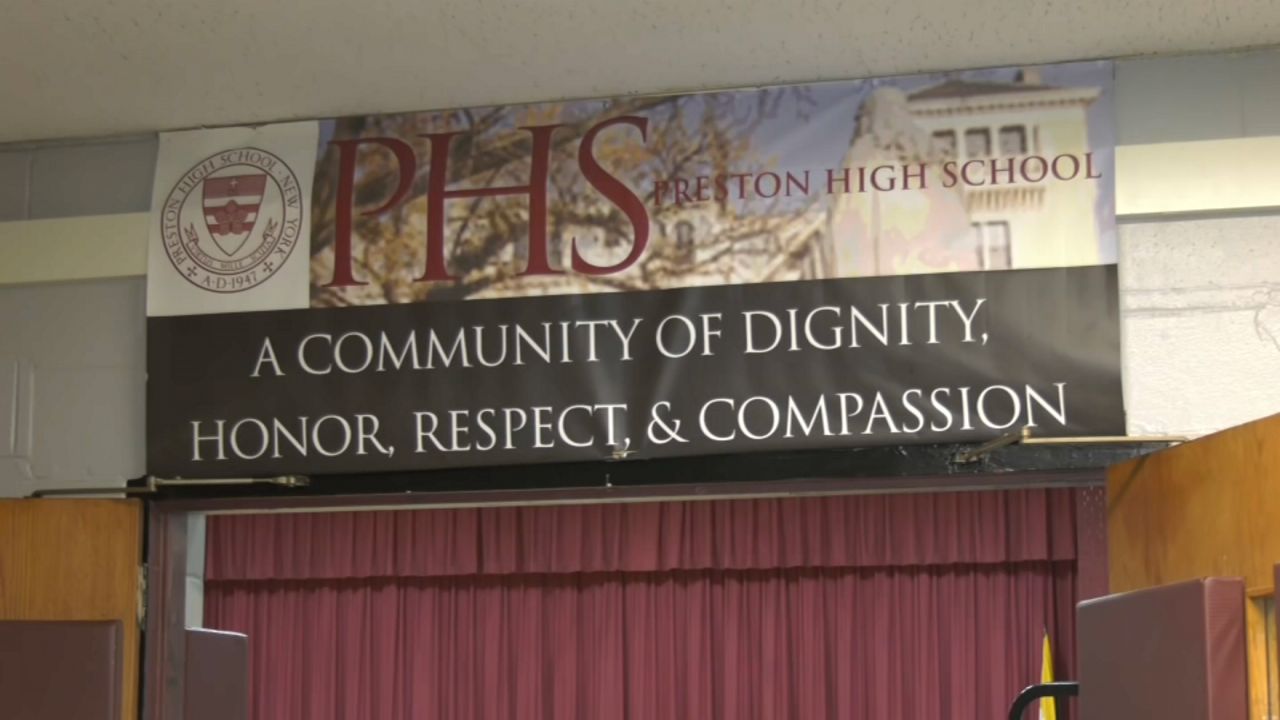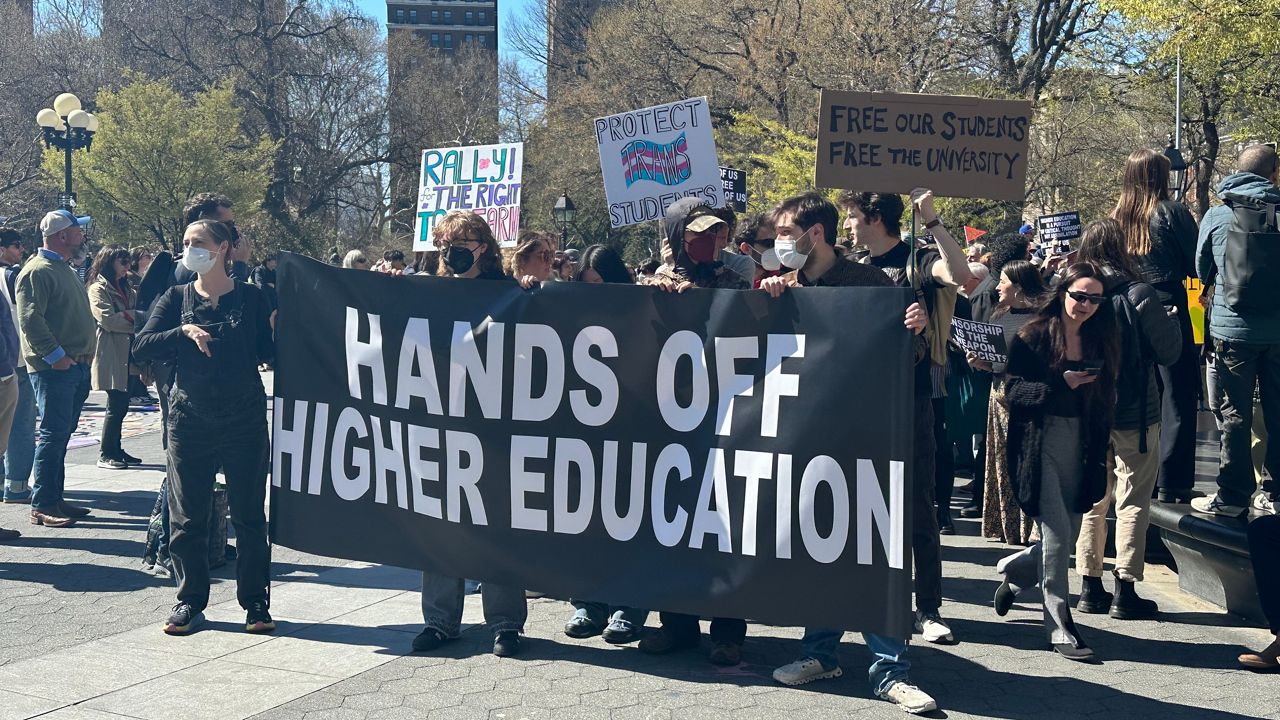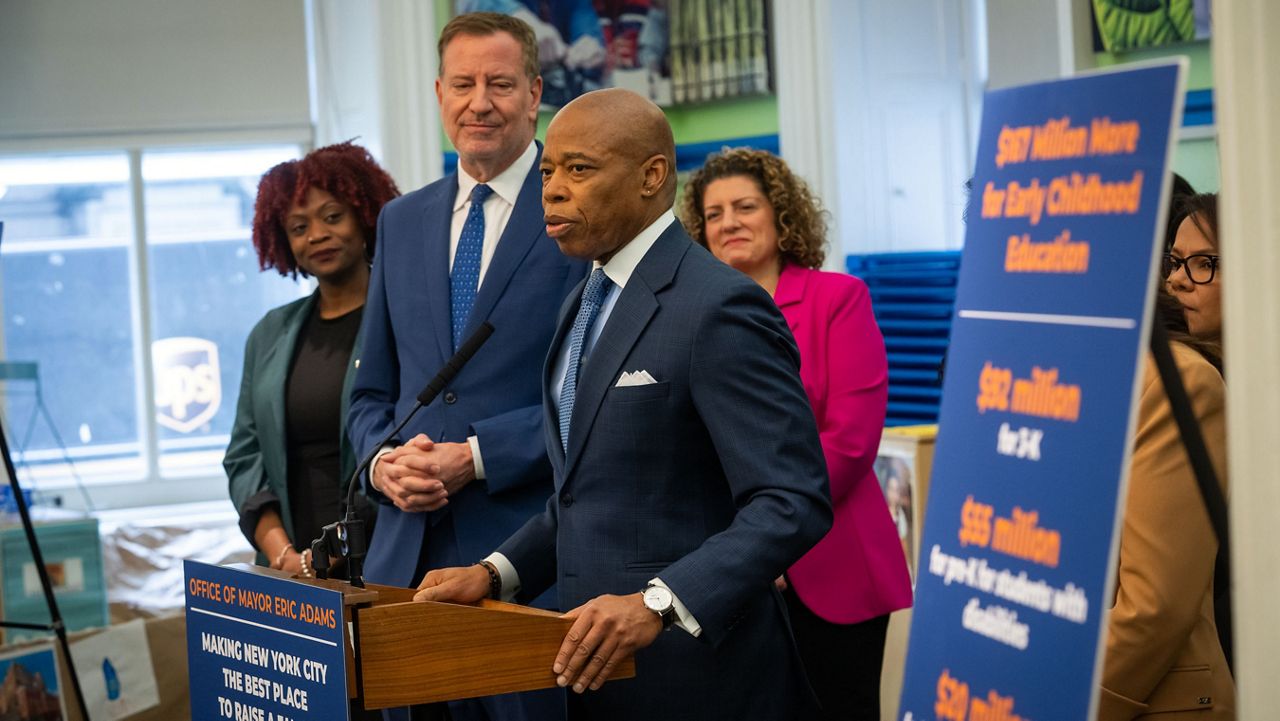The city has determined that four Orthodox yeshivas are failing to provide an education “substantially equivalent” to what’s offered in public schools — and recommends the state reach the same conclusion for another 14 yeshivas the city says are ultimately under state authority.
The findings are the results of a long-stalled and politically thorny investigation that has stretched on since 2015.
The city found that just seven schools they investigated met standards. That’s in addition to two it found were up to standards in 2019.
What You Need To Know
- The city has determined that four Orthodox yeshivas are failing to provide an education “substantially equivalent” to what’s offered in public schools — and recommends the state reach the same conclusion for another 14 yeshivas the city says are ultimately under state authority
- The findings are the results of a long-stalled and politically thorny investigation that has stretched on since 2015. The city found that just seven schools they investigated met standards. That’s in addition to two it found were up to standards in 2019
- The city says it could not make a final determination in the case of the 14 schools because of an amendment that gives the state education commissioner the power to make final determinations for schools that meet certain requirements
- The investigation was spurred by a complaint from a group called Young Advocates for a Fair Education, or YAFFED, headed at the time by a yeshiva graduate who argued his education left him ill-prepared for the world outside of religious studies
The city says it could not make a final determination in the case of the 14 schools because of an amendment introduced in 2018 by state Sen. Simcha Felder, which gives the state education commissioner the power to make final determinations for schools that meet certain requirements, like having a bilingual program. For that reason, the ruling is not final for those 14 schools, and the recommendations will not be made public.
State Education Commissioner Betty Rosa had ordered the city Department of Education to complete the inquiry — which, in 2019, the city Department of Investigation ruled had been delayed by former Mayor Bill de Blasio’s administration for political purposes — by today.
The investigation was spurred by a complaint from a group called Young Advocates for a Fair Education, or YAFFED, headed at the time by a yeshiva graduate who argued his education left him ill-prepared for the world outside of religious studies. YAFFED and other critics argue many so-called ultra-Orthodox yeshivas provide little to no secular instruction, particularly for boys, and instead focus on religious studies. Representatives of the schools have pushed back strenuously on those claims.
The schools are private, but do receive some state funding and, like all private schools in New York, are required to provide children with an education “substantially equivalent” to what is offered in public schools. The investigation kicked off a debate of what exactly substantially equivalent means, prompting the state to develop rules for determining it.
The rules, adopted in September, subject non-public schools to review by local school districts — in New York City, the DOE — to determine if they meet criteria like having a competent teacher provide instruction, offering classes in English, math, science and social studies, and that lessons are provided to children with limited English proficiency to help them learn English.
The investigation, and the guidelines from the state, kicked off massive outcry from Orthodox groups, who have characterized them as an attack on religious liberty.
In an interim report released in 2019, the DOE reported that just two of 28 yeshivas were meeting standards, and that some were not allowing the city access to conduct reviews.
Critics have long argued the city dragged its feet in the investigation to avoid angering the Orthodox community, which is politically influential in the city. And in 2019, the Department of Investigation determined that the mayor’s office delayed the release of the preliminary report in exchange for support of the extension of mayoral control of city schools.
In a statement provided to NY1 on Friday, the group Parents for Educational and Religious Liberty said the “outcomes of yeshiva education are on display every day across New York: in the successful business and professional careers of tens of hundreds of thousands yeshiva graduates and in the law abiding and loving families they are raising here.”
"PEARLS rejects the attempt to measure the efficacy of yeshiva education by applying a skewed set of technical requirements,” the group said. “Utilizing a government checklist devised and enforced by lawyers may help explain the state of public education. It is designed to obscure rather than illuminate the beauty and success of yeshiva education.”
“Parents choose yeshiva education for their children because of the religious, moral and educational philosophy and approach of those who lead yeshivas,” it added. “They will continue to do so, regardless of how many government lawyers try to insist that yeshiva education is best measured by checklists they devise rather than the lives yeshiva graduates lead."







_DNT_Columbia_Protest_CLEAN_FOR_APPROVAL)

